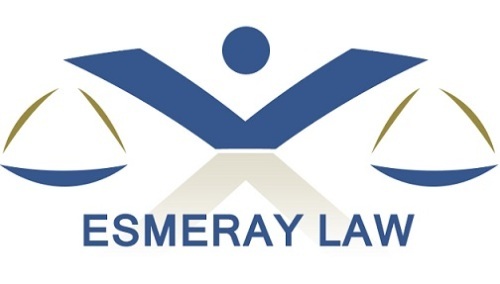
|
Esmeray Law Office
|
Real Estate Law Consulting in Turkey
| Payment Terms: | T/T |
| Place of Origin: | Turkey |
|
|
|
| Add to My Favorites | |
| HiSupplier Escrow |
Product Detail
representation of buyers and sellers in the acquisition and disposition of the various kinds of real estate including office buildings, retail centers
Real estate refers to producing, buying and selling real estate. The real estate industry is an important driver of economic growth.
Globally, the real estate investment market is said to be displaying exceptional liquidity in both the equity and debt markets, with a huge weight of money chasing commercial property. In 2013 this was evidenced by:
full-year sales transactions up 21% to US$563 billion;
fourth-quarter volumes hitting nearly US$200 billion;
24 countries achieving in excess of US$1 billion in transactions during the last quarter;
Several major markets registering record transaction levels;
Further prime yield compression and an acceleration in capital value growth, increasing by an average of 7.5% year on year for prime office assets;
Global investment volumes in the hotel sector were up a massive 40% in 2013, while industrial transactions in Europe grew by 70%.
representation of buyers and sellers in the acquisition and disposition of the various kinds of real estate including office buildings, retail centers, industrial properties and residential properties;
examination of title to real estate, evaluation and negotiations;
land use entitlements, due diligence investigations and compliance with laws;
negotiation and preparation of development and construction agreements and other documents required to develop and construct office buildings, shopping centers, mixed-use projects and industrial sites;
negotiation and preparation of office, retail and industrial leases;
representation of lenders and borrowers in real estate secured loan originations, loan sales and purchases and other debt arrangements;
advising lenders, borrowers, partners, landlords, tenants and developers in real estate transactions;
representations of real estate owners, buyers, sellers, lessors, brokers, lenders, and developers in, among other things, contract disputes, construction disputes, eminent domain proceedings, title disputes, loan service and bankruptcy.
Although a downturn during the 2001 economic crisis and 2007 mortgage crisis, the whole construction sector, which is one of the engines of overall economic growth in Turkish economy, grew by an average of 12.7% during 2002 – 2006 and 14.8% during 2010 – 2012. As of 2013, output growth in the construction sector moderated compared to the previous two years, totaling 8.6%. One of the reasons behind the boom was the increase in home ownership in Turkey as economic growth translated into higher spending power, while declining interest rates and the strong domestic currency prompted people to invest in residential investments rather than other savings instruments. In Turkey, purchasing real estate is a very popular way of investing. Compared to their European counterparts, house prices in Turkey are relatively cheap given that they are still 60 % to 70 % less than the Eastern European average and 80 % to 90 % less than the general European average.
Both private and public sector agents have been heavily involved in the recent construction activity in Turkey. As of 2014 it is estimated that more than 2.600 mass housing projects throughout Turkey, mostly located in big cities like Istanbul, Ankara and Izmir, were carried out. On the public side, governmental agencies such as TOKI (Housing Development Administration), Emlak GYO (Real Estate Investment Company), and subsidiaries of municipalities like KIPTAS, TOBAS, etc. are the major players in construction projects in metropolitan areas.
For 2014, the State Planning Organization (SPO) estimates Turkey's new annual housing requirement to be around 864,000 units. Turkey's young and increasingly urban population is the source of residential demand in the future. Around 50 % of the 76.7 mn Turkish population are now under 30.1. The average house-hold size, which is almost double the EU average, could be another factor of residential demand in the coming years, assuming that the size of households will decline over time towards nuclear families.
Demand from abroad represents another relevant driver behind the recent development in the Turkish residential market. According to the statistical reports revealed by Ministry of Economy; Turkey succeeded to receive USD 12.7 billion as FDI in year 2013 whereas real estate and construction received USD 300 million of the total FDI. The total accumulated capital inflow touched the height of USD 10.1 billion and foreigners purchased real estate in Turkey for USD 3 billion.
The real estate sector in Turkey represents 19.5 percent of the total GDP, which brings great investment potential to the sector. Compare to the previous year, the share of the real estate sector in GDP increased by 1.6 % in 2013 and hit 6.0 %.
According to the statistic published by Turkish Statistics Institute (TurkStat), the total volume of houses sold in 2013 reached 1.1 million. 10 % of these transactions were realized by foreign investors. Foreign individuals are allowed by law to buy property and land in officially zoned areas which includes cities, towns and resorts, up to 10%.
As regards major facts and figures about the current situation, strategic plans and the future projects in the pipeline such as government's plan to renew and retrofit buildings that are prone to destruction during natural disasters, which includes 6.5 million residences, with a budget of USD 400 billion, Turkey's real estate sector bears huge potential for investors. In the upcoming years, the prospects for the Turkish residential property market re-main positive, backed by rising housing needs and increasing access to bank financing.
Real estate law deals with a variety of related issues, including: rights and interests in real property; sales, purchases and other transfers of real property; legal aspects of rental property and landlord issues; tenants', renters' and homeowners' rights; title to real property; settlement of claims against property rights; property development; zoning and land use; related agriculture issues; home loans and various other relevant topics.
We offer the skill and experience to handle complex real estate transactions efficiently and cost-effectively. Our goal is to enable clients to proceed quickly and to facilitate successful completion of each transaction, solving problems as they may arise.
Our services include:



